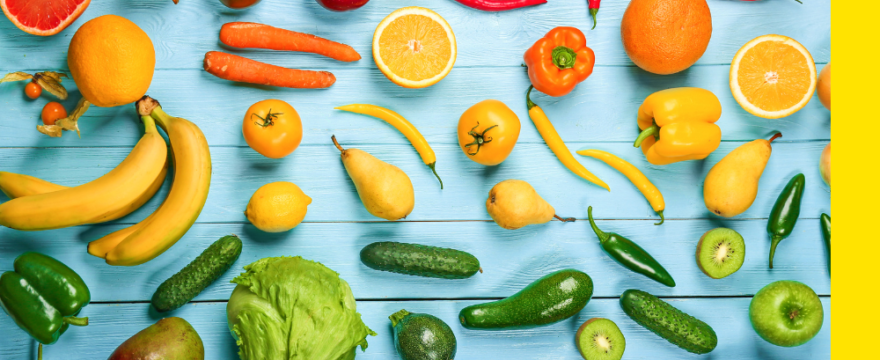A recent U.S.-based study published in the Neurology medical journal found a link between the consumption of ultra-processed foods and a higher risk of stroke and cognitive decline. The study, which included over 30,000 adults aged 45 years and older, showed that a 10% increase in ultra-processed food consumption was associated with a 9% increased risk of stroke and a 12% higher risk of cognitive impairment.
Ultra-processed foods are defined as those that undergo multiple processes like extrusion, molding, and milling, and contain many added ingredients.
Let’s break down these words in simple terms:
Extrusion:
Extrusion is like pushing playdough through a mold to make shapes. In food, it’s a process where ingredients are mixed and then forced through a machine to create specific shapes or textures, like pasta or snack chips.
Molding:
Molding is when you put food into a shaped container to make it take that shape. Think of how Jell-O is poured into a mold to create fun shapes.
Milling:
Milling is like grinding food into smaller pieces. It’s what happens when grains are turned into flour. The food is crushed and ground up to make it finer.
Added Ingredients:
These are extra things put into food to make it taste better, last longer, or look nicer. This can include things like refined sugar, salt, preservatives, and artificial colors.
Examples of ultra-processed foods include soft drinks, chips, chocolate, candy, ice cream, sweetened breakfast cereals, packaged soups, chicken nuggets, sausages and fries.
Other studies have linked ultra-processed foods to adverse health outcomes, such as increased mortality risk and various health disorders.
Replacing ultra-processed foods with healthier alternatives like fruits, vegetables, nuts, and legumes can significantly impact brain health.
Try something new today. Try this raw vegan sausage that will give you energy and a brain health boost.
Concerned about cost?
The most expensive ingredients in this recipe are the walnuts, sunflower seeds and dates.
I buy all of them organic from Thrive Market, which is the most affordable place to get organic dry goods. EBT SNAP benefits can be used towards SNAP-eligible food purchases on the site. You can get 40% off your first order here.
The organic sprouted walnut halves that I get are $13.29 for a 10-ounce bag. The organic pitted medjool dates are $8.99 for a 13-ounce bag, so that’s less than $9. And the organic sprouted sunflower seeds, I do spend extra for sprouted to save myself time. For a 16-ounce pouch, it’s $10.29, but you could get non-sprouted and sprout them yourself for $4.99.
Comparison:
- Raw Vegan Sausages (with Sprouted Sunflower Seeds): $2.13 per sausage
- Raw Vegan Sausages (with Non-sprouted Sunflower Seeds): $1.94 per sausage
- MorningStar Farms Veggie Breakfast Meatless Sausage Patties: $0.67 per patty
The ingredients in the processed vegan sausage include:
Water, Wheat Gluten, Soy Protein Concentrate, Vegetable Oil (Corn, Canola And/Or Sunflower), Soy Flour, Soy Protein Isolate. Contains 2% Or Less Of Maltodextrin, Methylcellulose, Yeast Extract, Salt, Fruit Juice For Color, Natural Flavors, Spices, Sugar, Potato Starch, Konjac Flour, Onion Powder, Soy Sauce (Water, Soybeans, Salt, Wheat).
Besides being concerned about the health of your brain, these ingredients are red flags for someone who has or is concerned about getting hypertension and diabetes.
Diabetes Concerns:
- High Carbohydrate Content:
– Ingredients like maltodextrin and refined sugar can cause spikes in blood glucose levels. Maltodextrin, in particular, has a high glycemic index, which means it can rapidly increase blood sugar levels.
- Refined Carbohydrates:
– The presence of wheat gluten, soy flour, and potato starch means the product contains refined carbohydrates, which can also lead to rapid increases in blood sugar.
- Hidden Sugars:
– Processed foods often contain hidden refined sugars that lead to difficulties in managing blood glucose levels.
Hypertension Concerns:
- High Sodium Content:
– Processed foods typically contain high levels of sodium to enhance flavor and preserve shelf life. High sodium intake is linked to increased blood pressure, which is detrimental for individuals with hypertension.
- Soy Sauce:
– Soy sauce is naturally high in sodium. Consuming foods with soy sauce can contribute significantly to daily sodium intake, exacerbating hypertension.
General Health Concerns:
- Preservatives and Additives:
– Ingredients like methylcellulose, natural flavors, and yeast extract are additives and preservatives that may have adverse health effects. While they enhance texture and flavor, they provide little to no nutritional benefit.
- Vegetable Oils:
– The use of vegetable oils like corn, canola, and sunflower oil, which are high in omega-6 fatty acids, can contribute to inflammation when consumed. Chronic inflammation is a risk factor for many diseases, including cardiovascular diseases.
Comparatively Healthier Choice:
In contrast, the raw vegan sausage recipe contains whole, minimally processed ingredients like walnuts, sunflower seeds, dates, and natural seasonings. These ingredients offer:
– Nutrient Density: Whole foods provide a wide range of essential nutrients, including vitamins, minerals, and antioxidants.
– Healthy Fats: Nuts and seeds are rich in healthy fats, which are beneficial for heart health.
– Lower Sodium: Homemade recipes allow for better control over sodium content.
– Natural Ingredients: Using natural, unprocessed ingredients reduces the risk of adverse health effects linked to additives and preservatives.
For someone managing diabetes and hypertension, prioritizing whole, minimally processed foods is generally a better approach to maintain stable blood glucose levels and manage blood pressure effectively.
Is $1.30 per sausage difference worth your health?
I invest in good quality food now so I don’t have to pay in low quality of life later on. I don’t have to pay in physical pain to my body having to deal with all the pricks, prods and procedures with type 2 diabetes and all the pills that come along with hypertension.
What if time is an issue?
Discover 10 Quick and Affordable Raw Vegan Recipes to Prevent Diabetes and Hypertension!

Leave a Reply